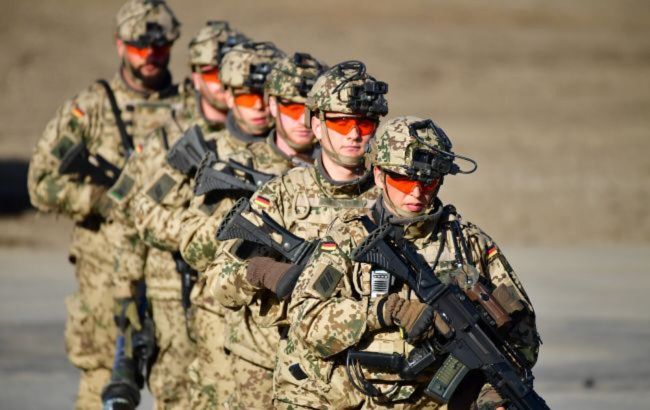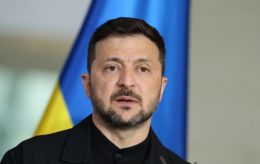Germany braces for Putin attack: women and pensioners to drive military trucks
 Photo: German Bundeswehr soldiers (Getty Images)
Photo: German Bundeswehr soldiers (Getty Images)
The German Federal Association of Road Freight Transport, Logistics and Waste Disposal is considering involving women and pensioners in driving trucks to deliver equipment and supplies to the frontlines in the event of a war with Russia, according to Bild.
Germany is already facing a severe shortage of truck drivers, with an estimated 100,000 vacancies hampering the country’s logistics sector. This deficit could worsen drastically in the event of a Russian attack.
Dirk Engelhardt, head of the Federal Association for Freight Transport, Logistics and Waste Disposal, warned that if Russia attacks even one NATO country, Germany could lose up to 300,000 Eastern European drivers, many of whom would be compelled to return home.
This would leave the country short nearly 400,000 truck drivers, about half the number needed, at a time of military crisis. In such a scenario, the federal government and the Bundeswehr would become critically dependent on civilian drivers to deliver supplies and military equipment to the front.
"If we can’t close a 400,000-driver gap at a critical moment, we won’t be able to support the Bundeswehr effectively, nor supply the civilian population," Engelhardt said.
To address the looming crisis, he proposed launching a "turbo mode" to mobilize hundreds of thousands of women and pensioners to operate trucks. He also called for slashing regulatory barriers.
Engelhardt suggested Germany should begin recognizing truck-driving licenses from select third countries, such as Moldova or Uzbekistan, and allow those license holders to drive commercially without the need for additional training, which is currently mandatory.
"The specialization requirement needs to go; it’s holding us back," he emphasized.
Risk of major war between Russia and NATO
European security experts have warned that 2029 could mark the beginning of a potential Russian assault on NATO, though some German officials are now citing 2027 as a more likely date.
According to Germany’s armed forces, Russia is preparing for a possible large-scale conflict with NATO. The German military’s General Staff believes Putin could launch such an attack within the next four years.
Meanwhile, Moscow has stepped up surveillance of NATO activity in the Baltic Sea and continues to provoke the alliance with regular military maneuvers.

